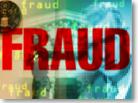|
FBI cracks down online
|
 |
May 10, 1999: 3:30 p.m. ET
Agency plans to form Internet Fraud Complaint Center for scammed surfers
|
NEW YORK (CNNfn) - The Federal Bureau of Investigation has had to battle gangsters and bank robbers but now it's taking on a thoroughly modern menace: Internet fraud.
The FBI confirmed Monday that it is creating a special unit, the Internet Fraud Complaint Center, in an effort to crack down on the wide variety of hucksters looking to scam unwary Web consumers.
The unit, to be created in conjunction with the National White Collar Crime Center, will register complaints online from consumers who feel they may be the victims of fraud.
"People who are already online and are used to that don't want to have to get offline to take care of a problem," said Julie Miller, spokeswoman for the FBI. "They want to handle it as easily as they do other online situations."
Miller said the high priority cases will be forwarded to the FBI, while state and local authorities will be notified about the smaller, lower priority complaints.
The agency is still formulating the structure for the complaint center and could not give a target date for when it would be up and running.
Growing problem
The move by the FBI underscores the increasing capacity of Web-based scammers to come up with new ways to separate consumers from their money.
According to the National Consumers League, complaints about Internet fraud are on the rise, increasing 600 percent since 1997.
The vast majority of the complaints the league receives are from buyers who wanted to purchase something they bid on during an online auction.

Online auctioneering's biggest name, eBay, was investigated earlier this year by New York City authorities after receiving complaints from users of the service.
While eBay has announced changes that it hopes will cut down on such fraud, such as more stringent user identification methods and free insurance for transactions of up to $200, consumers are still well-advised to be wary.
Consumers face a wide range of fraud online, including pyramid schemes, work-at-home and business opportunity scams and ads touting high-paying job listings -- for a fee.
Even though legislators and law enforcement officials are grappling more and more with the issue of online crime, buyers need to watch out for themselves, according toe Cleo Manuel, vice president of public affairs at the National Consumers League.
"The government isn't going to be there all the time," said Manuel. "Even with protections, it's still 'buyer beware.'"
Though Web fraud takes many forms, Manuel said there is a single underlying reason most people who are scammed find themselves in that position.
"They believe what they're told. They don't question what they read or they don't investigate."
Such thinking goes beyond the old "sucker born every minute" maxim, Manuel said. Instead, many online consumers believe -- or want to believe -- that it's their lucky day, that they will be able to get away with getting something for nothing or at a greatly reduced price.
The ease with which anyone can make a professional-looking Web site also makes it more enticing. Consumers assume that someone whose Web site looks polished must be a legitimate business.
With millions of people taking to the Internet for the first time each year, shady characters are finding new "markets" for their scams almost daily, according to the NCL.
However, as people become acclimated to the Web, more and more of them become smarter, more suspicious buyers of online offerings.
Whether you're new to the Web or have been on it for years, you can begin making smart choices that will lessen the possibility you'll end up being defrauded.

Know who you're dealing with
Starting with a business you know is the best place to begin. This doesn't mean, however, that you can buy only from the biggest names.
It could be a small, local company. As long as you know physically where a company is or where you can go for further information or assistance, you'll be better off.
After you've got a company or two in mind, you'll need to investigate further. The good part about the Web is that you can take as much time as you need to look into a company. There's no salesperson standing over you intimidating you into making a decision.
The Better Business Bureau and other consumer agencies are good place to inquire about a company's track record and complaints, if any.
Make sure you understand the offer before you pay. If you need more information, any legitimate company will be willing to give it to you.
When it comes time to pay, make sure the transaction is secure and give the company only what's legitimately needed for the transaction. Even partial information can be used to impersonate you or make unauthorized transactions.
Online auctions present a more difficult challenge, since many of these transactions are between individuals who are less easily investigated.
However, you can make sure at least to get a physical address and other identifying information, such as a phone number, so you can follow up if you have a problem. If the person won't submit that, you may be better of forgetting about making a deal.
When paying for auction items, use a credit card, since it will be easier to dispute charges. If possible, you can use an escrow agent who will act as a middleman holding both payment and goods until both arrive.
-- by staff writer Randall J. Schultz
|
|
|
|
|
 |

|

